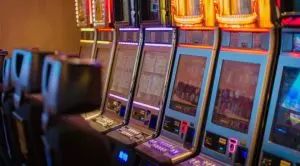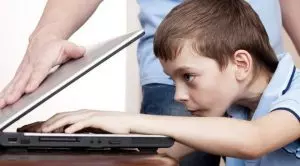 The UK Gambling Commission (UKGC) published its latest Young People & Gambling research to reveal the current gambling trends of children between 11 and 16 years of age in the country. As the UKGC shared, the 2019 survey looks at the forms of gambling and gambling-style games which young Brits participate in both legally and illegally.
The UK Gambling Commission (UKGC) published its latest Young People & Gambling research to reveal the current gambling trends of children between 11 and 16 years of age in the country. As the UKGC shared, the 2019 survey looks at the forms of gambling and gambling-style games which young Brits participate in both legally and illegally.
The survey was carried out by Ipsos MORI among 2,943 pupils from 11 to 16 years of age. The research took place from February 12th to June 19th, 2019.
The Gambling Commission has today published the 2019 Young People & Gambling survey which looks at gambling trends of 11 – 16-year-olds in Great Britain. https://t.co/EB1ooGtaq5 pic.twitter.com/6WEWCH7Pp1
— Gambling Commission (@GamRegGB) October 23, 2019
According to the survey findings, the most common type of gambling activity among local children aged 11-16 is private bets with friends for money. Card games with friends turned out to be another popular form of gambling among young people. The information revealed by Ipsos MORI, the firm which carried out the research, also shows that about 4% of British children revealed they have played slot/fruit machines in the past seven days, while a further 3% confess buying scratchcards of the National Lottery in the same period.
The Executive Director of the UKGC, Tim Miller, shared that the report unveils the kind of interaction which local children and young people have with gambling and their gambling behaviour. As Mr Miller explained, the data in the report shows that their interaction originates from three main sources – the forms of gambling which they are legally permitted to take part in, gambling-style games and gambling on products that are forbidden for their age group.
Making Private Bets for Money Remains the Most Popular Form of Gambling among 11-16-Year-Olds
 The survey, carried out by Ipsos MORI, showed that 11% of the young people aged 11-16 say they spent their own money on gambling in the week preceding the survey. That percentage represents a 3% decline from the 2018 rate. Also, 7% of the interviewed 11-16-year-olds said they have gambled online ever.
The survey, carried out by Ipsos MORI, showed that 11% of the young people aged 11-16 say they spent their own money on gambling in the week preceding the survey. That percentage represents a 3% decline from the 2018 rate. Also, 7% of the interviewed 11-16-year-olds said they have gambled online ever.
A slight decline was registered in the gambling participation rate of children who said they gave spent their money on gambling activities over the past 12 months – from 39% in 2018 to 36% in 2019. According to the survey findings, the average amount spent by young people on gambling in the past seven days was £17.
As mentioned above, the most popular form of gambling among 11-16-year-olds is making private bets for money. A total of 5% of the children who took part in the research shared they did that in the past seven days. Slot machines (also known as fruit machines) were also very popular in this age group, with 4% of children between 11 and 16 confessing they played on such machines.
Playing cards for money with friends and buying National Lottery scratchcards were also among the most popular forms of gambling among children aged from 11 to 16 (3% participation each). About 2% of the interviewed young people revealed they have participated in a Lotto draw over the past seven days.
Online gambling turned out to be quite popular among children between 11 and 16 years of age. About 5% of the ones who took part in the survey revealed they have played National Lottery games on the Internet and/or other gambling websites through their parents’ account with permission. Gambling-style games available online were played by 12% of the children, with 47% the 11-16-year-olds doing that through a mobile application.
About 1.7% of Children Aged 11-16 Can Be Classified as Problem Gamblers, Researchers Say
 As for gambling advertising and its role in the development of gambling habits among British children, about 69% of the surveyed 11-16-year-olds revealed they have seen or heard gambling adverts. More than 10% of the children shared they have ever received direct marketing materials related to gambling. Most of them, about 83%, claimed that these gambling operators’ marketing materials had not pushed them into gambling.
As for gambling advertising and its role in the development of gambling habits among British children, about 69% of the surveyed 11-16-year-olds revealed they have seen or heard gambling adverts. More than 10% of the children shared they have ever received direct marketing materials related to gambling. Most of them, about 83%, claimed that these gambling operators’ marketing materials had not pushed them into gambling.
More than half of young people (52%) said they have heard of so-called in-game items, with 44% of these children who say they have opened loot boxes for real money and 6% said they have bet with in-game items through unlicensed third-party websites or with friends. Almost half of the 11-16-year-olds who confessed paying with real money to open loot boxes (49%) got the money as their Christmas or birthday presents, while 34% of these children said that the money was given to them by their parents especially for purchasing the in-game items.
The bad news is that the number of children, who are believed to be at risk of developing a gambling addiction, is rising. The number of young people between 11 and 16 years of age who are classified as problem gamblers has remained the same in 2018 and 2019. According to the Ipsos MORI study, 1.7% of the children who took part in the research are gambling addicts. As for the ones who are at risk of becoming problem gamblers, a slight increase was reported in comparison to the 2018 percentage rate – from 2.2% in 2018 to 2.7% in 2019.
Paradoxically or not, 60% of the interviewed children said they feel well-informed about the risks associated with gambling. Most of them also agreed that gambling is dangerous. Only 7% of the 11-16-year-olds said they find nothing wrong for children they age to gamble once a week. Also, the majority of children who took part in the research (about 74%) said they know who to turn to in case they experience any problems with gambling.
- Author


